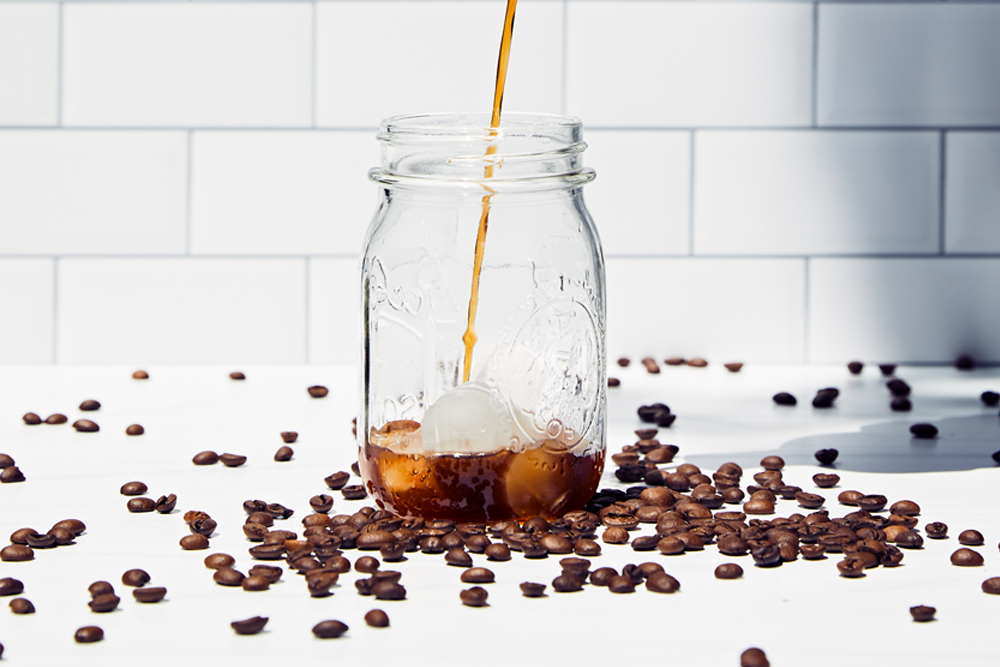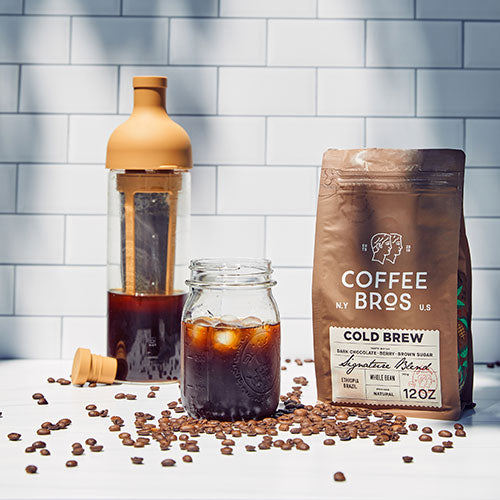Nathan loved coffee—he was a barista at a specialty coffee shop—but he started to notice something after a couple of months of work. His stomach was upset… a lot. The discomfort drove him to the doctor, who told him the terrible news:
“You need to stop drinking coffee.”
As my friend told me he'd have to quit working at the cafe, my gut dropped. It seemed like a nightmare. Little did I know how common this series of events is.
Coffee upsets the stomachs of millions of people in the country. If this is you… you're not crazy. But you're also not doomed.
There are ways to continue enjoying your daily coffee ritual without all the suffering.
Let's walk through the reasons why coffee impacts you negatively and how you can fix it.
Coffee Subscription Deal
Subscribe to Coffee Bros. coffee for 25% off when using code "FTSUB25" at checkout
The 3 Big Reason Coffee Upsets Your Stomach
There are primarily three reasons coffee can make you feel meh down in the stomach. Each one requires a different approach to fixing the issue, so let's make sure we can nail down which one it is for you.
You're Body's Not Fond Of The Caffeine (The Big Problem)
As you undoubtedly know, caffeine stimulates your digestive system (partially by irritating it), which… helps things flow. It's a natural laxative, forcing your digestive system to work really hard, really fast. But the boost to bowel movement readiness often comes with a bit of discomfort.
And there's more to caffeine's dark side—it also triggers your body to produce more acid, which after a lot of caffeine, can lead to so much acid that you get a tummy ache. It's not harmful. Just not very fun.
This is where most people get their coffee-related stomach discomfort from. The high caffeine levels lead to two issues, not just one. Thankfully, there's a way to counteract them both (more on this later).
You Have An Acid Sensitivity (The Small Problem)
Coffee is an acidic drink, but it's not that acidic. Here, we'll prove it by looking at the pH levels of other common drinks:
- Neutral pH: 7
- Dasani Water: 6
- Black Coffee: 5.7
- Coca Cola: 2.5
- Lime: 2.2
Here's what it means: the acids found in coffee aren't crazy, and unless you have a specific acid sensitivity, the acid is not the problem.
Now, it's possible that the caffeine is triggering you to produce too much acid—but that's a bit different from having an acid sensitivity.
You Skipped Breakfast (The Biggest Problem)
Coffee is not a subtle drink. It's strong, filled with caffeine, acid, oils, aromas—and it's a lot for your stomach to handle without something else to spread out the impact.
If you drink coffee on an empty stomach, you're bound to have tummy trouble. The natural laxative effects won't feel good. Your stomach will probably over-produce acids. It's just not a good time.
And here's the thing… this can happen to anyone. Even if coffee's caffeine never seems to impact you. Even if you have zero acid sensitivity. Coffee on an empty stomach is bad news.
4 Ways To Brew Without The Pain
Now that you know what the real issues are (and which ones aren't as big of a deal as everyone says… *ehem acid*), let's get into the easy fixes you can start trying out.
Stop Drinking Coffee On An Empty Stomach (Easy)
Okay seriously. Stop.
Bananas are alkaline and can cancel out some of the coffee's acids. Milk is the same way. Sugary cereals don't really do too much for you, so if you can go with something more substantial, like oatmeal or eggs, that's better.
The goal is to spread the caffeine out among other foods so that you're not digesting it all within a few minutes.
(Simply drinking your coffee more slowly can also help here.)
Try A Decaf Coffee (Hard)
Here's a (not so fun) way to see if it's the caffeine that's bothering you: quit caffeine for two weeks. Awful, we know. Then add decaf coffee back for two weeks. The lack of caffeine (there's still a tiny amount left) should leave you feeling much better.
Of course, then you're not getting caffeine—that's why we suggest trying the “eating food approach” first.
Give Cold Brewing A Go (Easy)
Cold brew coffee is this magic elixir with 66% less acid and caffeine. The cold water simply doesn't extract as much as hot water—so the end result is quite different.
It tastes smoother, sweeter, and more aromatic. Not everyone likes that it doesn't have the same acidic bite or bitter caffeine notes, but it's absolutely worth trying.
And here's why cold brew is almost a silver bullet when it comes to stomach pain from coffee…
- It's easy on the tummy. 66% less acid and caffeine—solves a lot of problems right there.
- It can be drank both cold and hot. Most people add ice to make iced cold brew, but you can absolutely dilute the concentrate with hot water instead for a mostly-normal hot coffee.
- You can get really creative with it. From cold brew lemonade to homemade iced cold brew lattes, you'll never run out of fun ways to drink your cold brew.
- It's really easy to make at home. Just mix coarse coffee grounds and water, wait twelve hours, and strain. Easy!
Getting an upset stomach from coffee is a bummer—we know the feeling—but there are several things you can try to fix before you give up on our liquid magic altogether.
You should obviously never drink coffee on an empty stomach, but if you're looking for a more impactful fix, we're big fans of the cold-brew route.
It's so easy, but the trick isn't in the technique—it's in the beans.
Always start with freshly-roasted, specialty-grade coffee beans. Otherwise, you'll end up with a bad-tasting cold brew you hate (and that's a fast way to ditch cold brew and go back to the stomach aches).
Get the good beans, brew the good cold brew, and live the good life… upset stomach-free.




